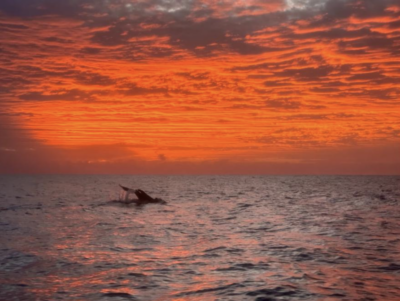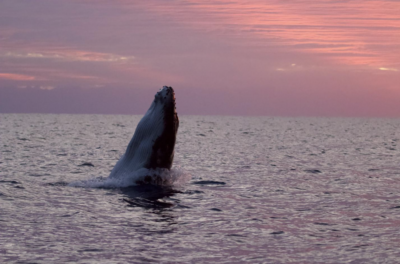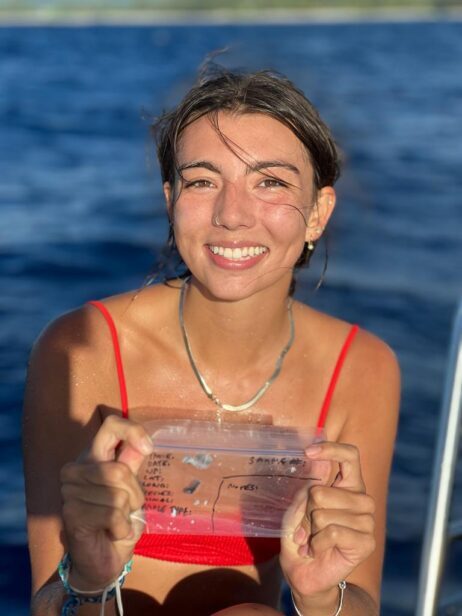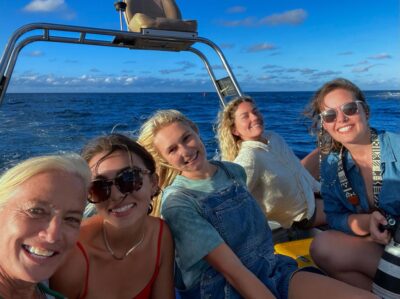Time passes differently on the open ocean, a passive presence that lulls in and out of one’s consciousness with the rhythms of swells. Quiet moments on still water can drag on: time looms over you like a vampiric presence, elongated by the possibility of a whale-induced ripple. Eyes become strained, focused, and red-rimmed; backs and butts sit torqued between pelican cases; core muscles remain tensed and fight the rocking of your boat. And you, the observer, feel completely embodied in your discomfort. Minutes become hours and become a persistent feeling of shifty anticipation.
But, in an instant, time can disappear again: Maybe, a whale, inhabiting an otherworldly dimension, passes directly under your boat. Its shadow unveils the edges of your plane of existence, offering you a glimpse into the dimension beneath your own.
Curious, you free dive into the deep blue, descending from one plane into the next. Your ears crackle and pop, adjusting from a life of ease in a visual existence to life in a purely auditory one. Sound travels four times faster in water than in air. You become immersed in a womb of song: alien whines and groans, patterned and repeated in a manner that envelops and penetrates you, evoking a sense of profound longing, an anguish that makes your toes curl.
Returning to the buoyant white speck that constitutes your plane of reality on this ocean, you humbly present the humpback’s song, a treasure that makes your heart tremble. The song recalls the sea in its romantic melancholy.
Then, from above. The sun burns the sky from blue to purple to orange, a spectacle that rivals the majesty of the whales below. The idea of nature as peaceful and serene is a gross misconception. Nature exists in constant competition with itself, and tonight’s performance is no exception: A calf, not ten days old with a dorsal fin still flopping to its side, briefly eclipses the sun in an offensive play consisting of breaches and tail slaps. The sun responds by painting wave crests in a brilliant shade of hibiscus pink.
The battle rages on. You, the observer, are helpless but to marvel in its heat and divinity.
As the light finally fades, the horizon disappears along with it, hazy and greying into itself. The sun’s last laugh: an absence of light signifying the closing of the curtains.
As you head home, the cold, falling darkness encourages the sea spray to sting your cheeks. Suddenly, the whales respond with an encore: a breach that forces the day’s last remaining photons to reflect ghostly white on the sea foam. And, even more astounding, the triumphant sound of water parted by a surprising and violent crash. The final act.
To receive and to revel.








